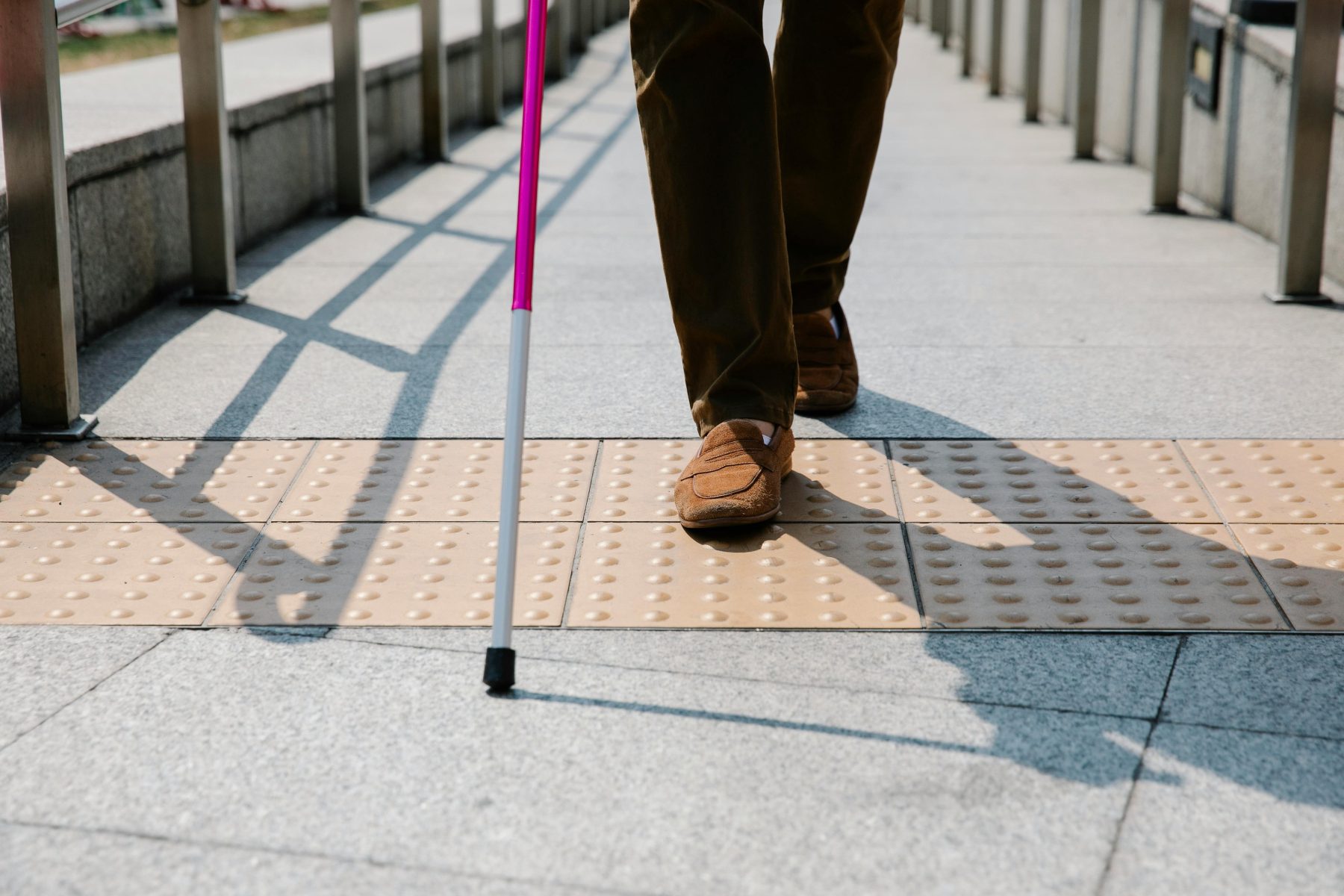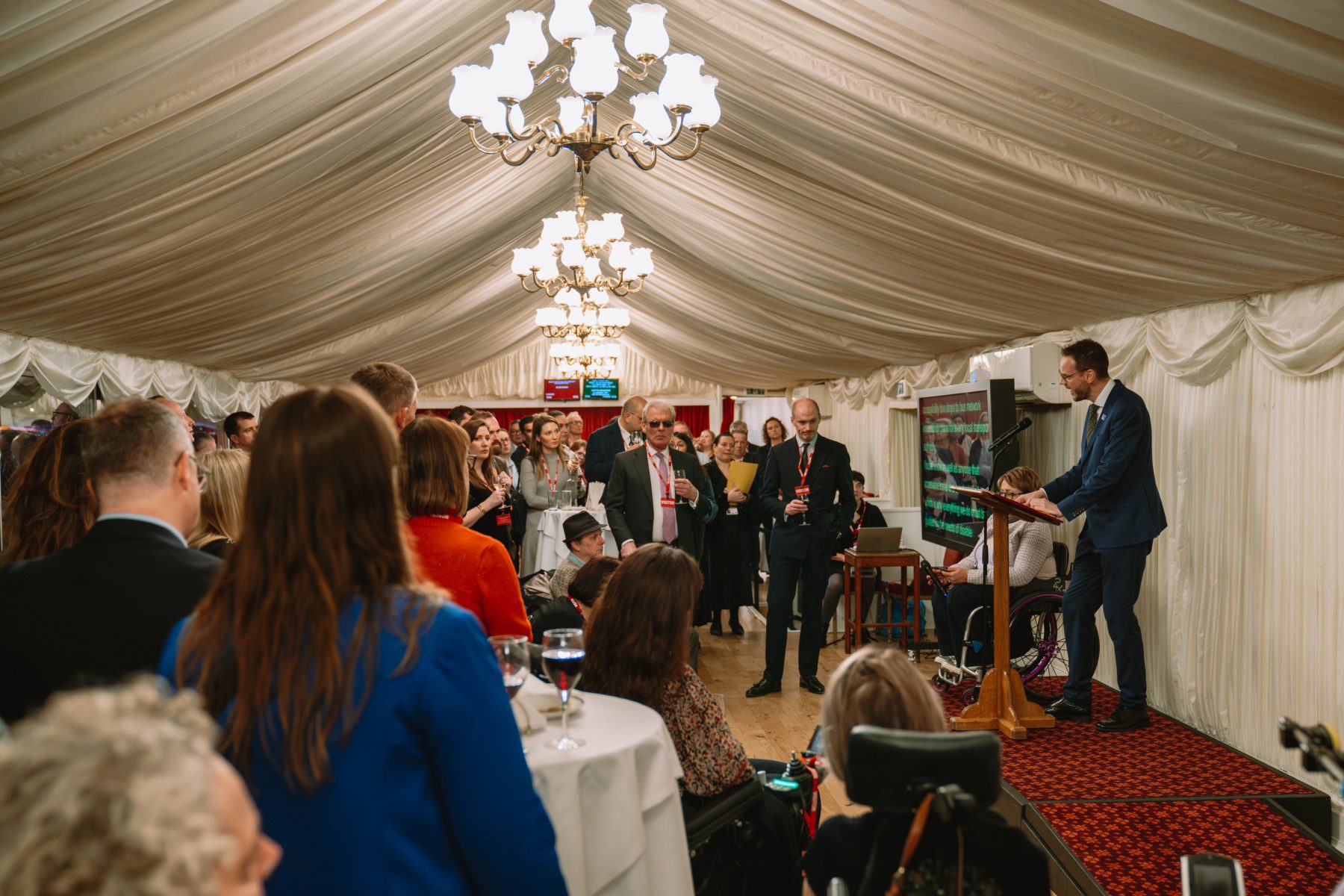Closing the transport accessibility gap: Making transport accessible for disabled people
Sign the charter for local and regional political leaders across the UK
Transport is a cornerstone of modern society, driving economic growth and enriching lives by connecting people with their loved ones, schools, workplaces, and recreational and cultural activities.
And yet, disabled people are being left behind by the UK’s transport system. According to the Motability Foundation, disabled people take 38% fewer journeys than non-disabled people – a difference known as the transport accessibility gap. This is an unacceptable injustice to disabled people, whose ambitions and potential may be severely curtailed. It is also costly to the country, which misses out on their valuable contribution both to society and to the economy. People who cannot get to work cannot pay taxes.
Trains and buses lack priority seating. Stations have too many steps and too few lifts, and staff often don’t have enough training to assist disabled passengers. Meanwhile, our streets are made impassable for many by misplaced refuse bins, uneven pavements, and a shortage of level crossings and tactile signage. The noise, harsh lighting and disorderly environments found across the transport system can cause extra stress and anxiety.
Disabled people’s journeys – when they happen at all – tend to take longer, require more planning and result in indignities and, sometimes, injury.
Help us close the transport accessibility gap
We must give disabled people a stronger voice in the governance and delivery of transport services so as to ensure transport delivers for everyone. We must eliminate barriers to travel by vehicle, on foot and wheel alike. And we must protect key services such as community transport services that many rely on to travel to schools, workplaces and shops, entertainment and other amenities.
As a Councillor or Mayor, I will:
- Secure the appointment of a disabled people’s champion to key transport public decision-making bodies. This should be at all levels of decision-making on transport design and on funding allocation – including my local or combined authority’s Transport Committee. Where possible, the champion will have lived experience of disability and have full voting rights on spending decisions.
- Encourage and support local transport authorities and transport operators to set up accessibility panels composed of disabled people and disability organisations to support with the delivery of their services. These panels must be attended by a member of the senior management team to hear directly what works and make sure funding to improve the network is spent efficiently for the benefit of all passengers. Organisations will coproduce future service plans and contracts with their panels to ensure that they have a clear clause setting out accessibility requirements.
- Promote community transport services and accessible public transport – including rail, tram, bus, active travel and other shared mobility – by clearly demonstrating their value to disabled people and the areas they serve. The local or combined authority I represent will explore opportunities to protect and widen access to these services for disabled people and how the importance of accessible transport can be reflected in future strategies and procurement plans. In doing so, I will develop mechanisms to ensure spending decisions are co-produced with disabled people.
- Make our streets accessible, inclusive and safe for disabled people. This will include working with my local authority to make it easier for the public to report accessibility problems, and securing dedicated funding to tackle inaccessible streets.
Sign up to the charter
Click here to register your commitment to closing the transport accessibility gap.
In return, you will be invited to events hosted by the Accessible Transport Policy Commission at the Houses of Parliament and be kept up to date with accessible transport good practices.
This charter was prepared by the Accessible Transport Policy Commission.
About the Accessible Transport Policy Commission
The Accessible Transport Policy Commission is part of the National Centre for Accessible Transport (ncat) and works to remove barriers to transport for disabled people across the UK.
The Commission meets at Parliament to bring together Parliamentarians, disabled people, transport professionals and policymakers from the national, regional, local and devolved levels of government to improve public policies and everyday practices. It does this by applying evidence and insights from ncat and a wide range of other experts through roundtable discussions, research symposiums and cross-sector meetings.
The Commission is chaired by Baroness Tanni Grey-Thompson DBE DL (Crossbench) and convened on a cross-party basis with Parliamentarians from both Houses.
Its secretariat is provided by the cross-party think tank Policy Connect.
About the National Centre for Accessible Transport
The National Centre for Accessible Transport (ncat) works to remove barriers through the development and dissemination of inclusive and robust evidence.
Our evidence will inform policy and strategy, and influence investment decisions by government, transport operators, and providers of mobility services.
Our work is fully rooted in the realities of the lived experiences of disabled people and stakeholders who inform and help prioritise our work.
ncat considers the transport system as a whole, to create an evidence base that inspires others to develop solutions for accessible travel that works for everyone.




